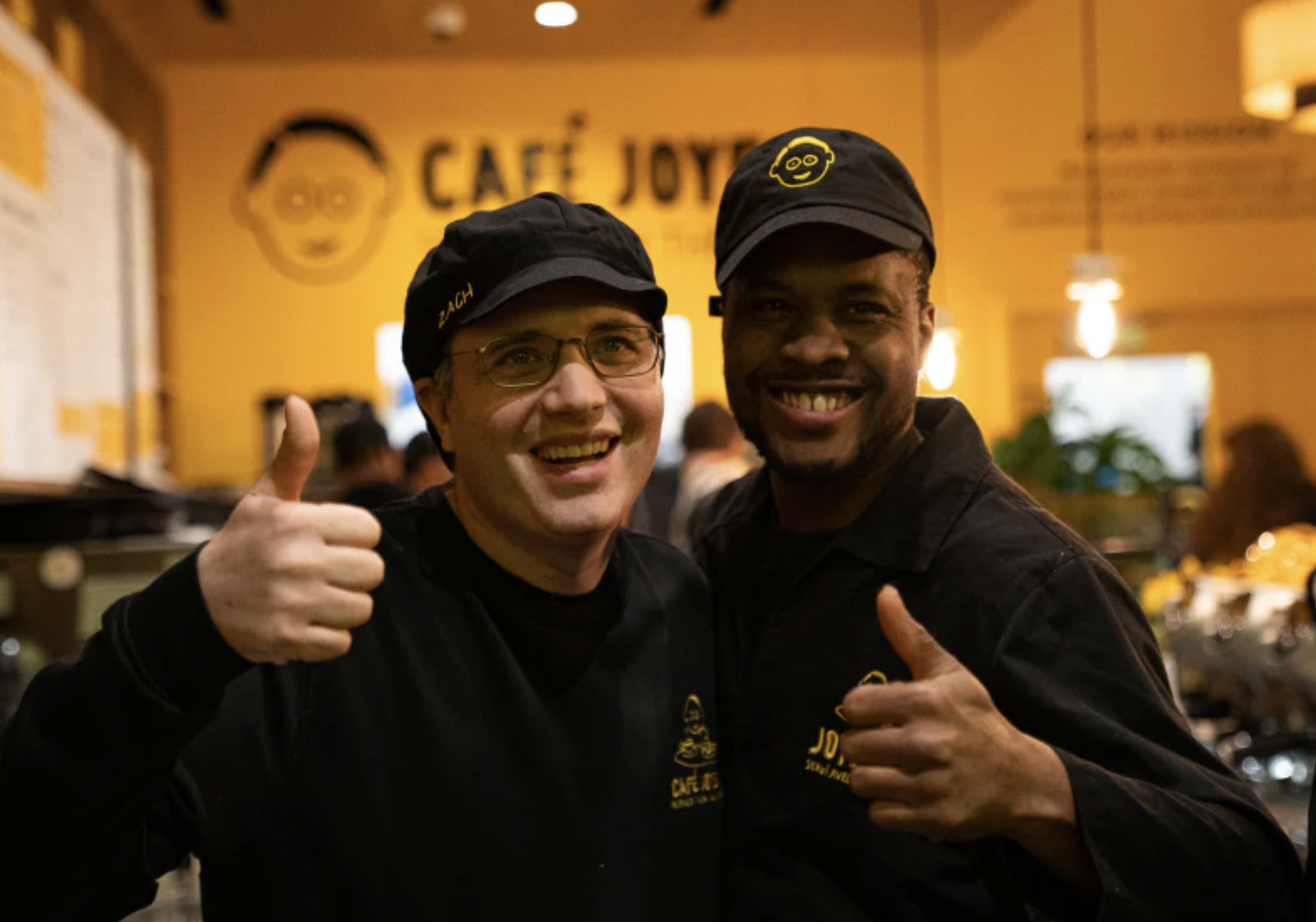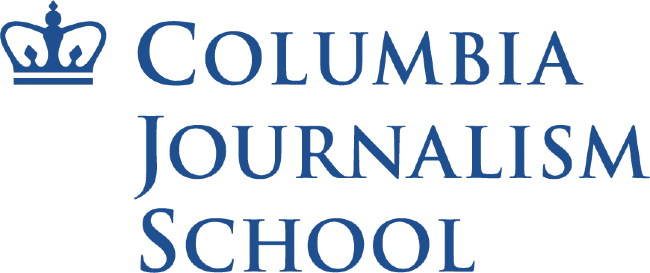
Employees at Café Joyeux. (Photo courtesy of Café Joyeux)
The employment situation for people with disabilities in New York City is dire, according to advocates who want more companies to see the benefits of hiring an inclusive workforce.
According to a report from AHRC NYC, an organization that helps individuals with disabilities find jobs, only about 36% of individuals with disabilities are represented in the workforce, compared to 65% of those without disabilities.
Michele Shapiro, director of employment and business services at AHRC NYC, said that stigma and misconceptions about people with disabilities continue to create barriers and a significant employment gap.
“It’s about changing people’s perceptions and showing that given the opportunity, people with disabilities can succeed,” said Shapiro.
But a small coffee shop in Midtown Manhattan, Café Joyeux, is making a difference by employing, training, and empowering neurodivergent individuals, in hopes of showing their value to the workforce to other companies.
Café Joyeux opened earlier this year, providing job opportunities for individuals with intellectual and developmental disabilities (IDD). Founded in France by Yann Bucaille-Lanzerac, the café now has 25 locations worldwide, with New York City being its first U.S. venue.
Jason Washington, manager and head trainer of Café Joyeux, said the decision to open in New York City was influenced by the availability of local support programs.
“New York City was probably the easiest, accessible place—as far as programs for people with disabilities,” Washington said. “There are a lot of organizations here, like Best Buddies and AHRC, that help connect us with individuals who might otherwise struggle to find work.”
The training program at Café Joyeux is designed to meet the unique needs of each employee, recognizing that a one-size-fits-all approach does not work. Washington explained that it can take up to two years for an employee to feel fully comfortable.
“Everyone has different needs—autism, Down syndrome, dyslexia—and we cater to people individually and as a team,” Washington said. “The goal is to have them become independent of management, so they can one day even open their own café.”
For Zachary Lichterman, one of Café Joyeux’s employees, the opportunity to work there has made a major difference. Previously employed in catering, Licherterman found the job at Café Joyeux more rewarding and better suited to his skills.
“It’s a wonderful experience. I really enjoy the work—it’s a warm, friendly, inclusive environment for me,” Lichterman said. “I’ve learned so many new things here, like how to work as a barista, and I love interacting with customers. It’s challenging, but I enjoy the busy atmosphere.”
The Office of People with Developmental Disabilities “State of the Workforce Survey” reported a turnover rate of 38.3% among Direct Support Professionals, who are trained to support individuals with IDD. The survey also indicated vacancy rates of 25% for part-time and 21.3% for full-time positions, which reflects the difficulty of maintaining a stable workforce to support people with disabilities.
AHRC NYC manages several inclusive employment initiatives across the city, including Project SEARCH, which provides internships in major institutions such as Montefiore Medical in Hudson Yards. “We partner with many different organizations to support employment opportunities for individuals with disabilities, and Café Joyeux is just one great example,” Shapiro said.
But she said the partnership with the café goes beyond job placement. “We get ideas from them, and they get ideas from us,” Shapiro explained. “Our goal is to equip these individuals with the skills they need to succeed in environments like Café Joyeux, and beyond.”
October marked National Disability Employment Awareness Month (NDEAM), a campaign that highlights the challenges and opportunities related to disability employment. The theme for this year was “Access to Good Jobs for All,” which emphasized the need to provide people with disabilities the chance to participate meaningfully in the workforce.
Café Joyeux held community events all month to showcase the skills of its employees. “We’re inviting people from different programs to come in and learn from our crew,” Washington said. “The goal is to show how capable our staff is and to inspire more businesses to take similar steps.”
Despite efforts like those at Café Joyeux, the employment landscape for people with disabilities in New York City remains challenging. Many companies are hesitant to hire individuals with intellectual and developmental disabilities, often due to preconceived notions about their abilities or the perceived costs of providing accommodations, said Shapiro.
“People with disabilities want to work just like everybody else. They are extremely reliable, focused, and have attention to detail that is unmatched,” she said. “Once they find a job they enjoy, they have the lowest turnover rate, which is a huge benefit for businesses.”
Washington is hopeful that Café Joyeux’s model can inspire other businesses to adopt more inclusive hiring practices.
“We’re not the first, but we hope to be part of a larger movement to show businesses that employing those with learning differences can be done successfully,” Washington said. “Ultimately, I want our employees to feel like they can work anywhere—not just in a café that caters specifically to neurodivergent individuals. They’re capable, and they deserve those opportunities.”
About the author(s)
Delan Li, originally from Beijing, is a M.S. student at Columbia Journalism School, she covers social justice, race, gender, and environmental issues.



